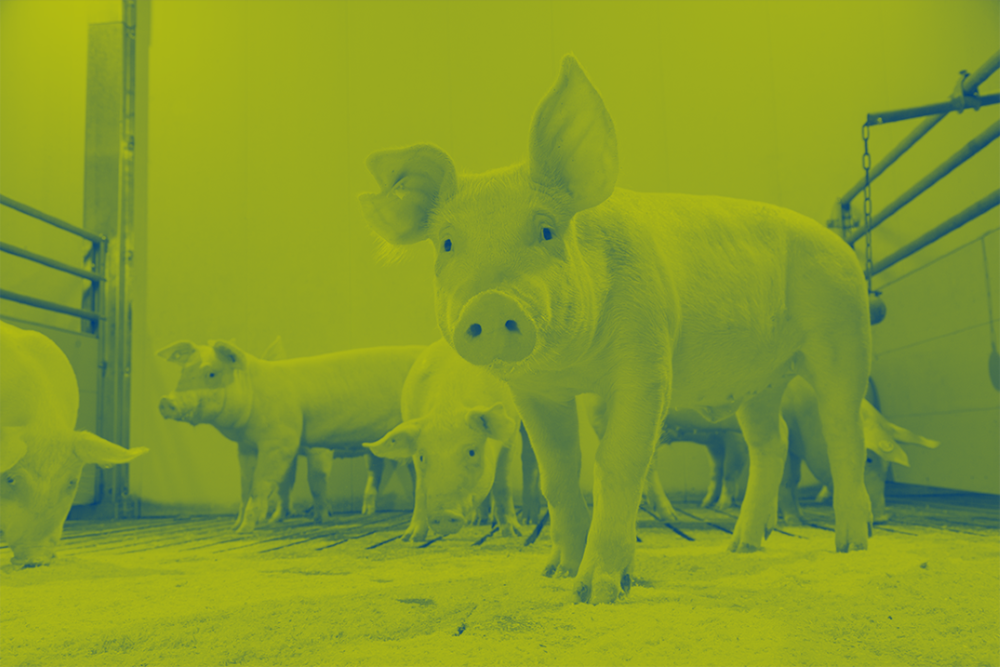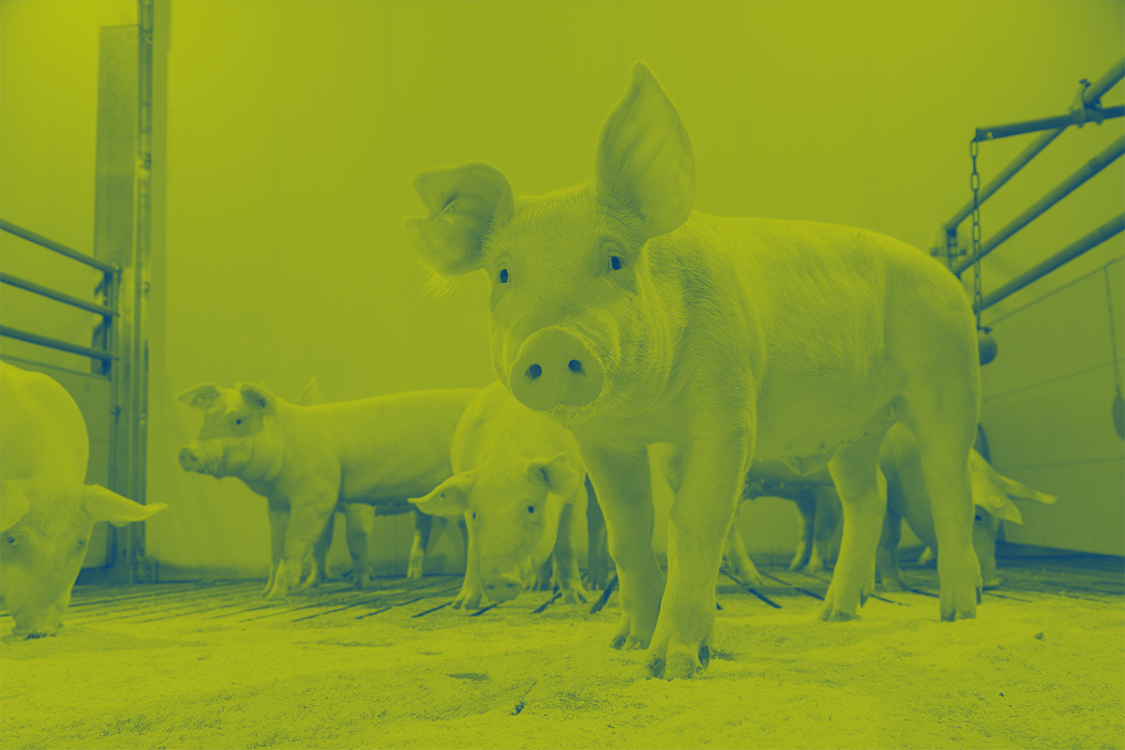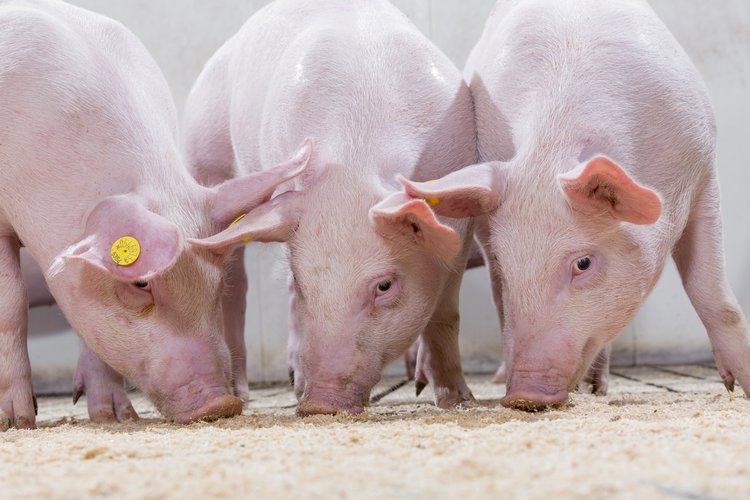
Achieving optimum performance
Optimal production is achieved when the animal reaches a high level of performance and feed efficiency, while maintaining good overall health. Ensuring nutrients are effectively processed and tailored to the pig's needs, while promoting growth and limiting nutrient loss is therefore an important factor in achieving optimal performance.
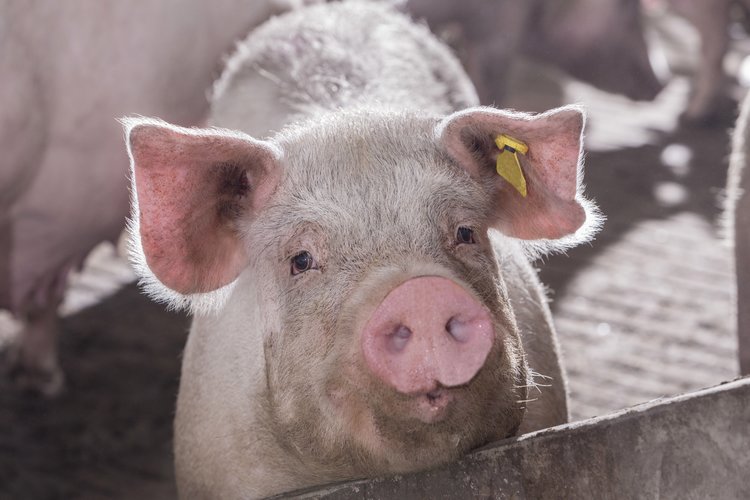
Supporting feed and water management
Supporting an effective water and feed management programme for grower-finisher pigs is crucial for achieving optimal market weight. A finisher’s body composition is 50% water, while feed remains the largest contributor to production costs, further underscoring the need for proven practices to help pig farmers best manage water and feed for their herd.
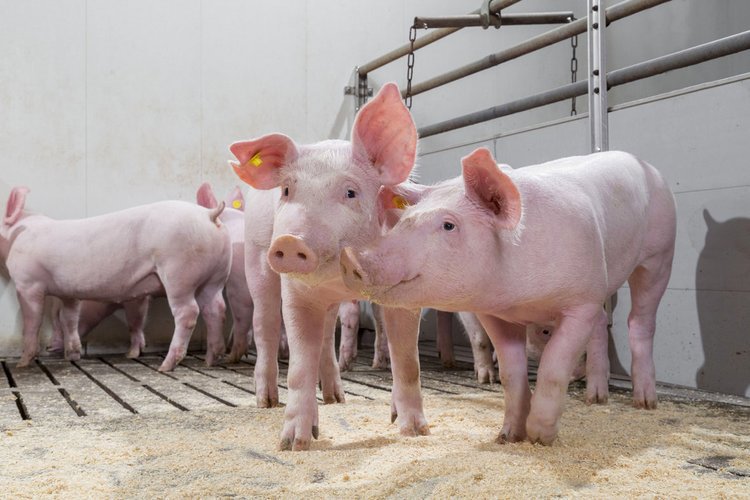
Reducing the use of antimicrobials
The antimicrobial reduction swine programme aims to support the swine industry to reduce the amount of antimicrobials used in the production chain. Our Feed, Farm and Health integrated approach allows customers to reduce the antimicrobial throughput, while maintaining profitable results.
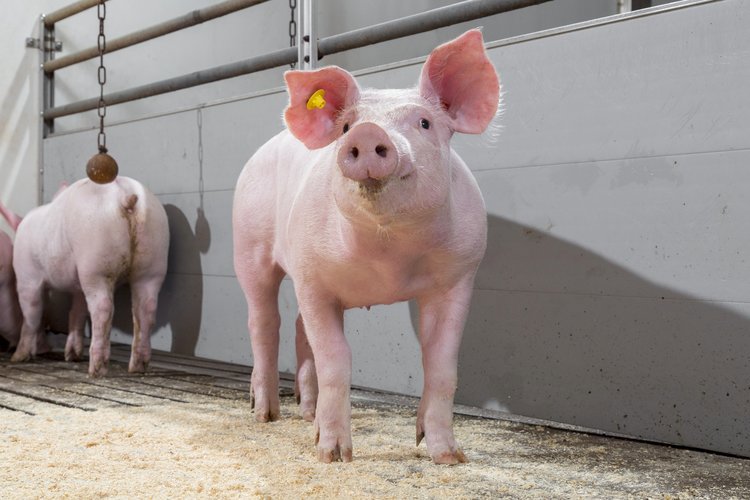
Controlling Salmonella in grower-finisher pigs
Salmonella not only affects animal health and performance but food safety. To comply with legal and commercial standards, Salmonella control measures should be implemented as early as possible in the production chain.
Grower-finisher pigs play a primary role as carriers through which the bacteria enters the food chain. We recommend a customised and integrated approach to protect your grower-finishers against Salmonella colonisation and invasion and reduce the bacteria’s horizontal transmission.
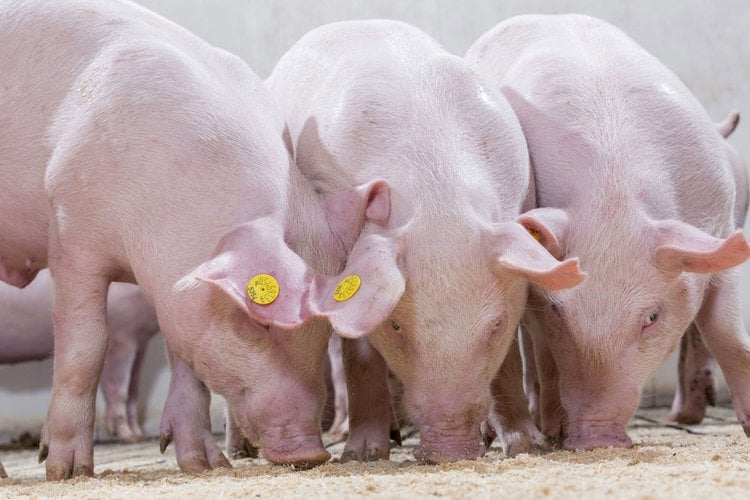
Optimising minerals in diets
Trace minerals, such as zinc, copper and manganese play a vital role in grower-finisher pi’s development and metabolism. They support multiple essential functions, including growth performance, immune response and health. Provided in wrong form and amount could generate negative outcomes for grower-finishers’ productivity, reducing body weight gain and feed conversion and leading to lower carcass and lean meat yield, disease response and potentially increased mortality. Therefore, it is encouraged that swine producers and nutritionists work together to provide a cost-effective trace mineral source most capable of consistently meeting the needs of the animal.
Production efficiency in the grower-finisher phase is only achieved when most of the feed nutrients can be used for growth.
